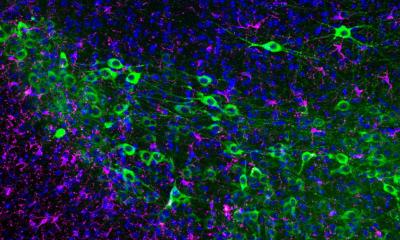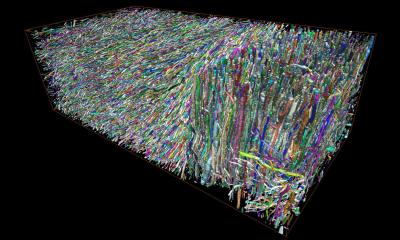Silicon
Research center combine electronics and photonics in neural probes
At the IEEE International Electron Devices Meeting 2015, world-leading nanoelectronics research center imec, KU Leuven, and Neuro-Electronics Research Flanders (NERF, set up by VIB/KU Leuven and imec) presented a set of silicon neural probes that combine 12 monolithically integrated optrodes using a CMOS compatible process.

The probes enable optical stimulation and electronic detection of individual neurons, based on optogenetics techniques. They pave the way to a greater understanding of the brain and towards novel treatments for brain disorders such as Alzheimer’s, schizophrenia, autism, and epilepsy.
The enormous burden that brain disorders pose on affected individuals and health care systems calls for new ways to prevent, treat and cure these diseases. Currently available devices for recording neural activity to study the functioning of the brain typically have a limited number of electrical channels. Additionally, the brain is composed of many genetically and functionally distinct neuron types, and conventional probes cannot disambiguate recorded electrical signals with respect to their source. Imec’s and KU Leuven’s novel neural probes tackle these challenges, set a path towards greater understanding of the brain, and enable novel treatment options for brain disorders.
Imec’s and KU Leuven’s novel probes combine electronics and photonics to perform extremely sensitive measurements. The fully integrated implantable neural microsystems have advanced capabilities to detect, process and interpret neural data at a cellular scale. The systems feature a very high density of electrodes and nanophotonic circuits (optrodes). Such optrodes are used to optically stimulate single neurons using optogenetics, a technology in which neurons are genetically modified to make them light-sensitive and thus susceptible to stimulation through light pulses.
This research is supported by the Agency for Innovation by Science and Technology in Flanders (IWT) through the OptoBrain project.
Source: imec, KU Leuven and NERF
28.12.2015











